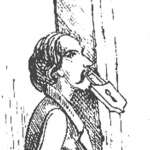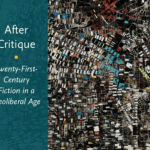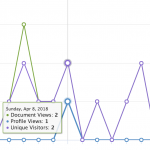technocapitalism
The Metainterface Spectacle

Building on their concept of metainterface, Søren Bro Pold and Christian Ulrik Andersen analyze the change in perception and experience that bring forth the always-on(line) mode of engaging with digital content. The notion of ‘spectacle’, in itself having a long history in critical theory, is employed here to discuss media politics and the struggle for power in terms of aesthetized computation, with their main driving forces being data analytics, surveillance and forensics. Pold and Andersen uncover how metainterface spectacle can also serve to empower political agency through reclaiming the apparatus.
Forms of Censorship; Censorship As Form

Beginning as a talk delivered at the National University of Kyiv-Mohyla Academy, Ukraine May 17, 2017, now edited and amplified for publication in the electronic book review and the 2018 collection of ebr essays forthcoming from Bloomsbury Press.
Information Wants to Be Free, Or Does It?: The Ethics of Datafication

"More is not necessarily more. Faster is not necessarily better. Big data is not necessarily better." In the effort to capture and make available data about people, digital humanities scholars must now weigh the decisions of what and what not to share. Geoffrey Rockwell and Bettina Berendt address the new ethical issues around “datafication” in an age of surveillance.
An Ontological Turn

In this review of Mitchum Huehls’ After Critique, Smith situates Huehls' “ontological approach” to the study of contemporary literature as arising from and standing in opposition to the "zombie plague" of neoliberalism.
Academia.“edu”

Investigating the question of whether academics should be concerned that Academia.edu is not an educational institution, Johannah Rodgers finds that the answers depend on your definition of “education” and which parties you ask.